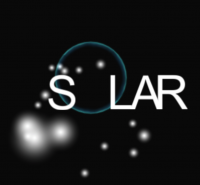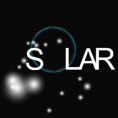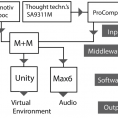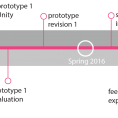
Resonance in Virtual Environments: hacking biofeedback for altering user's affective states
How can we combine immersive virtual environments (VE) with biofeedback and gamification to foster relaxation, de-stressing and meditative states?
That is, instead of increasing sensory overload, can we use the immersive and affective potential of VE and gamification to assist especially novice meditators in experiencing meditative and relaxing states through playful exploration with a bio-feedback based interaction design combining breathing sensors and EEG?
problem: Many novice meditators find meditation hard.
Most common reasons are: unfamiliarity with meditation practice, and lack of a feedback on how they are doing.
design goal: design a virtual environment that novice meditators will use as a tool for learning meditation and getting into practice.
issues:
reliability: the performance of sensors proved to be inconsistent, which can have a high impact on one’s experience
generalizability: prototype 1 was evaluated during SFU Open House, and we assume that most of our study participants are affiliated with SFU. This might affect the results of the study, and the result might not be consistent if there was a variety of the participants.
Mirjana’s presentation at Mindcare 2015:





